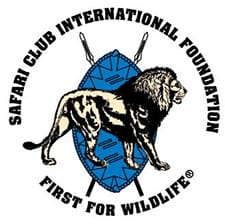By Jason Reid
Reporting from the 2016 Safari Club International Convention.

Las Vegas, Nevada – -(Ammoland.com)- When you compare the hunting message to the anti-hunting message it is almost like comparing ice cream to a well rounded three course nutrition loaded meal with a ten mile run as the drink special, just for fun.
They are two separate messages which we all understand to be completely poplar opposite for the basic reason, hunting vs. not hunting.
But when you break down both arguments, the list of complex messages grows and grows because hunting isn’t just simply pulling the trigger. As I said the anti-hunting message is like ice-cream, it is a shorter answer, tickles the emotions and is easier to consume. However, in the long run we all understand by choosing the nutrition loaded meal with a healthy workout regiment, your body ultimately becomes stronger and healthier And with too much ice-cream, well… you get it.
In a fast food world how do we as hunters relay this complex message of conservation, family heritage, land management, passion for wild animals, wild places and the roller coaster of emotions a hunt will take you through?
And we haven’t even mentioned any humanitarian work yet.
Talking about the emotions of a hunt alone can take up entire books. The ice-cream represents the empty calories and harmful sugars of the anti-hunting argument, a quick to digest emotion charged argument with no nutritious substance.
Safari Club Foundation
The Safari Club Foundation focuses on education and humanitarian efforts. Education efforts are aimed towards equipping people with the information they need about hunting, conservation and outdoor skills, specifically through the American Wilderness Leadership School or AWLS for short. Part of understanding the hunting and conservation culture is hands on experiences. Many of us understand the experience since we were raised with it. The SCI foundation realizes not everyone was raised to experience the wild and began providing educators with a useful hands-on experiences back in 1976 near the Bridger-Teton National Forest near Jackson, Wyoming. Since 1976 the AWLS school has hosted over 6,000 teachers. Using the North American Model of Wildlife Management as the central teaching tool. ALWS show teachers how to incorporate conservation education lessons into existing curriculum content such as math, science, language arts, social studies, physical education and art, since the outdoors can be interconnected into each of these subjects.

Todd Roggenkamp who is the Deputy Director of Education for the SCI foundation talked about the benefits of teaching educators at the Press lunch on opening day of SCI 2016. Even for those who do not hunt, the value of this course is for them to take back to their students this real world experience. The goal is to impart wisdom to the teachers so they can in turn have a factual presentations while talking to their students concerning hunting and conservation. How could one not walk away with a deeper understanding when you have the opportunity to learn from noted professors and scientists while spending time in and around important conservation land marks. You cannot beat true hands on experiences. Seeing and experiencing it with boots on the ground brings information to life.
Hunting and conservation are parts of a rich and multi-layered journey which cannot be consumed quickly.


It takes time since each new piece of information uncovers further questions and answers. It is part physical, spiritual, and emotional and in order not to miss anything, the journey must be savored.
Sure this isn’t the easiest answer in the world. But hunting would simply be killing if it were simple and easy. Conservation wouldn’t be conservation if it were just cut and dry. But I guess that is why you see hunters smiling at the end of a hunt. A small lesson in the complex answer was finally learned.
For more information about the wide range of projects and the Safari Club Foundation works on and how you may be able to join the AWLS camp, visit www.safariclubfoundation.org
About Jason Reid:
Jason Reid is a writer and business professional from upstate New York. After deciding to pursue his dream of becoming an outdoor writer, Jason started a blog from his dorm room at Houghton College, growing it and working hard to earn opportunities. While bowhunting big game is his ultimate passion, Jason welcomes all outdoor challenges which force him to push his limits. Jason’s work can be viewed on his website Pushingthewildlimits.com
